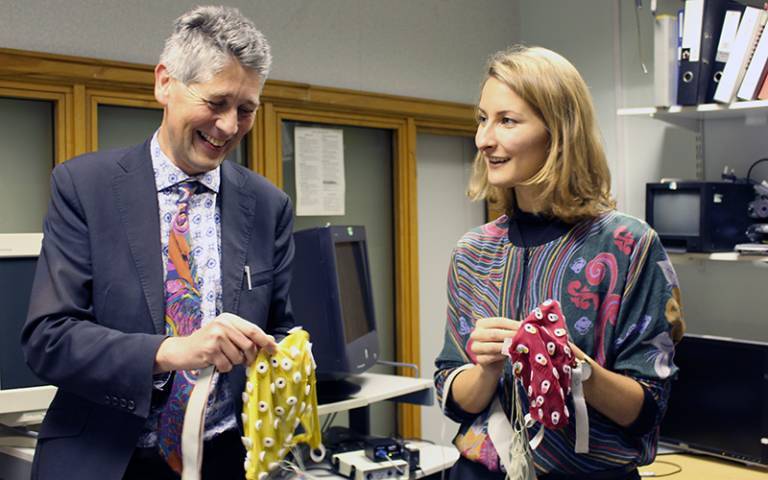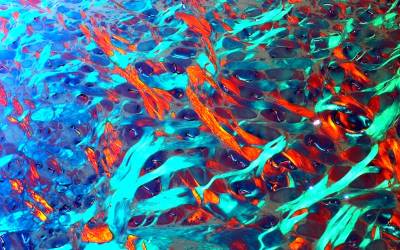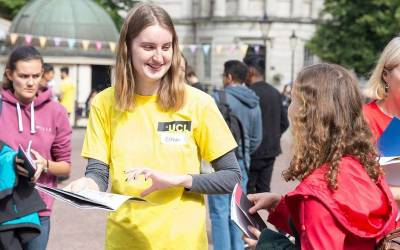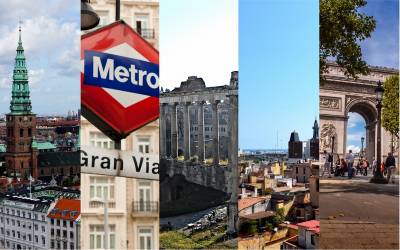Putting heads together
“Our European colleagues are really keen to keep in touch". - Patrick Haggard, Professor of Cognitive Neuroscience at UCL

29 April 2021
Patrick Haggard is Professor of Cognitive Neuroscience at UCL, specialising in studies of how the brain controls voluntary action and how it processes the representation of an individual’s own body. A Fellow of the British Academy and recipient of the Jean Nicod Prize (2016), he has published well over 500 papers. But while you might imagine that the study of something as individual and fundamentally internal as the human brain might lend itself to an isolated approach, Patrick’s work is often a joint effort between researchers and institutions all over Europe.
““Most of my own research could take place just within UCL,” he explains. “But it is always enormously enhanced by collaboration. I am often asked to contribute to projects that colleagues are developing in a research group in another country. Developing ideas, brainstorming projects, and sharing resources all increase the interest of the work and the quality of the scientific output.”
Accordingly, Patrick is developing innovative forms of joint research and education between UCL and partners in Paris and Rome, aided by UCL’s Cities Partnership Programme (CpP). Launched in 2018, the CpP is a cross-UCL initiative that supports, funds, and promotes the work UCL academics carry out with partners in global cities, with the aim of developing sustainable, multidisciplinary research and teaching partnerships.
Patrick’s collaborations with Paris stem from a visiting professorship he held in 2018-9 at École normale supérieure - PSL, which is part of UCL's partner institution, Paris Sciences et Lettres. He says: “This allowed me to facilitate several links including a CpP project led by ECRs (early career researchers), and a forthcoming summer school.” His CpP project in Rome is a study of the neural basis of our sensations of warmth and cold. “With COVID, we have been stuck in London working on the cold part,” he says. “But I'm looking forward to getting back to the warm part when I can next travel to Rome!”
Germany is another country where Patrick has forged strong collaborative links. UCL is the only international partner in an innovative nationwide PhD programme coordinated by the Max Planck Society and several German universities, including Humboldt in Berlin. UCL has welcomed several of these students on exchange projects. Patrick says: “The next aim is to develop dual degree programmes so that these students can come to UCL for a portion of their thesis research, and become the key actors in collaborative projects between UCL and German supervisors.”
Considering the impact of Brexit on European relationships, Patrick acknowledges that there is a need to adapt some collaboration processes. But he feels that the goodwill between UCL and academic institutions across the continent remains firmly intact, and he is looking forward to being able to meet his European colleagues again.
He is also proud that as a top 10 global university, UCL itself is home to such a diverse international community of staff and students. It’s something he’s keen to see continue.
““I think we often forget the extent to which the excellent scientific training, English language, and the culture of a world city such as London are major pull factors for the brightest young researchers. These people are a great injection of talent and energy for UCL, and we must continue to welcome them.”
 Close
Close




